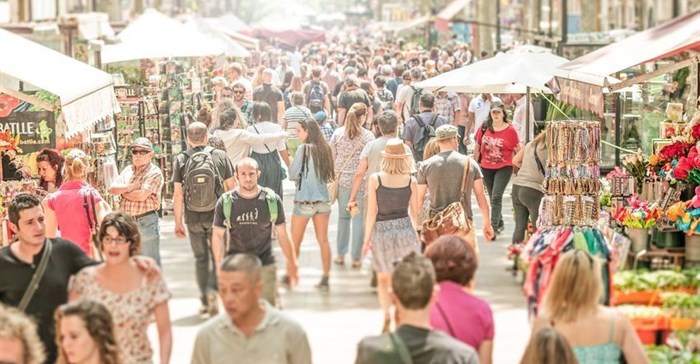
Top stories






More news

Marketing & Media
Warner Bros. was “nice to have” but not at any price, says Netflix

Logistics & Transport
Maersk reroutes sailings around Africa amid Red Sea constraints
















'Tourists go home': Leftists resist Spain's influx - BBC Newshttps://t.co/KK5555EdUy pic.twitter.com/dYmhhTCAxP
— Ungagged! (@_Ungagged) August 20, 2017
While the situation is not ‘dangerous’ for South Africans, it is advisable to stay away from the protests and monitor the news, tour operators around South Africa have warned.
“Responsible travel has become mainstream and it is incumbent on all travellers to be careful about the potentially negative impact they have on the destination they’re visiting,” says Theresa Szejwallo, MD the Travel Corporation. Szejwallo advises to always ensure you’re travelling with a tour operator that follows legitimate responsible tourism practices like Trafalgar with its TreadRight initiative.
An initiative supported by The Travel Corporation’s (TTC) family of brands, the TreadRight Foundation is a not-for-profit working to ensure the environment and communities travellers visit remain vibrant for generations to come.
Taleb Rifai, UNWTO secretary general, explains growing tourism numbers are ‘not the enemy’ and actually lead to economic growth and prosperity. Today, tourism generates 10% of the world’s GDP, 1 in every 10 jobs and 30% of world trade in services.
However, Rifai also adds it is crucial to ensure that tourism is an enriching experience for visitors and hosts alike and this demands strong sustainable tourism policies. He explains the sector needs regulations and clear guidelines, but not ones that would curb growth. Destinations and tour operators need to look into how they can diversify visitor activities both in type and location, reduce seasonality, and invest in new areas and new products.

Also, the World Travel and Tourism Council has announced it is planning to release a report on recommendations for travel brands on how to tackle over-tourism. This report will likely help brands educate their customers on how to properly behave when they travel and will suggest less congested yet exciting destinations to visit.
For Szejwallo, diversifying the tourism experience away from the crowds is key to a successful holiday in Europe for South African travellers. “Move away from the crowds to explore the lesser-known ‘hidden treasures’ of destinations. Take Venice for example. The city offers so much more than only St Mark’s Square,” she says.
Szejwallo adds that it is often much more rewarding for travellers to experience the Venetian art of glass blowing on Giudecca Island, or to eat Cicchetti on Burano Island with a glass of wine. “Having Cicchetti in a local pub on Burano Island will make you feel like a true local, enjoying real Venetian cuisine,” she says.
Travelling outside high season is also a good idea to avoid the masses and lessen the pressure on the destination and its inhabitants. Szejwallo explains that for South Africans, any time between November and February is high season. However, when travelling to Europe, this time is considered the low season and, therefore, more affordable and less crowded.
Says Szejwallo: “If you’re travelling to Mauritius or Cape Town in December, you’ll be paying top dollar because you’re travelling peak season. But, if you decide to travel to Europe, you’re going during their low season. You’re missing the crowds and your travel experience will be more affordable. It’s also a lovely time to visit Europe with its Christmas markets and winter vibe.”
The truth is that tourism will undoubtedly have downsides for the destinations and inhabitants. “Every growing human activity has a downside to it,” says Rifai. The answer, however, should never be to halt the activity and lose all the benefits, but rather to live up to the challenge and manage it correctly.